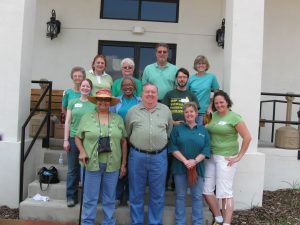|
|
Considering an intern to support your local organization?By CED Guest AuthorPublished February 17, 2012
A local economic development non-profit is considering an internship program to help support several high priority projects. The organization experimented with an internship program a few summers ago, but had trouble attracting high quality applicants, despite being located within driving distance of a university campus and a community college. Questions being contemplated include how to structure an internship to get maximum value for the organization; how to make the internship attractive to top quality students; and how to market the opportunity so that top quality applicants are aware of the organization’s internship. The following are several tips for local organizations that are considering an internship program. These tips are drawn from our program’s experience shaping and managing a variety of CED internships across North Carolina.
Will Lambe authored the NC Rural Center report, Small Towns, Big Ideas, and he served as Director of the Community and Economic Development Program at the School of Government from 2009 to 2014. |
Published February 17, 2012 By CED Guest Author
 Will Lambe is the Director of the Community & Economic Development Program and the Community-Campus Partnership.
Will Lambe is the Director of the Community & Economic Development Program and the Community-Campus Partnership.
A local economic development non-profit is considering an internship program to help support several high priority projects. The organization experimented with an internship program a few summers ago, but had trouble attracting high quality applicants, despite being located within driving distance of a university campus and a community college. Questions being contemplated include how to structure an internship to get maximum value for the organization; how to make the internship attractive to top quality students; and how to market the opportunity so that top quality applicants are aware of the organization’s internship.
The following are several tips for local organizations that are considering an internship program. These tips are drawn from our program’s experience shaping and managing a variety of CED internships across North Carolina.
- Focus the internship description on a discreet project. Avoid reference to an open-ended and unclear role in the organization. Describe a narrow and well-defined project with a beginning and an end. Be careful not to expect an intern to carry out the responsibilities of a full-time employee. Research for an upcoming grant application or surveys of local stakeholders are examples of typical and manageable internship projects.
- Be clear about the commitment that you expect. In the summer, student interns can be available for as much as full-time (although given the discreet nature of internships, do not expect too much in a limited time). During the academic year, while a student is taking classes, it is unrealistic to expect more than 12-15 hours per week.
- Include specific language in the internship description about (a) what an intern could hope to gain from the experience and/or (b) what the intern could hope to gain in terms of future job prospects at the organization or at similar organizations. Be explicit about why this is a great opportunity for the intern.
- Consider some payment. Even a small stipend for travel and meals will help attract more interest.
- Describe how the intern will be supervised including who will mentor the intern and help keep them on track.
- Finally, once the internship description is finished, make contact with the student services point of contact in each relevant department/discipline at your target college/university. Don’t assume that the centralized campus internship office will reach everyone.
Will Lambe authored the NC Rural Center report, Small Towns, Big Ideas, and he served as Director of the Community and Economic Development Program at the School of Government from 2009 to 2014.
Author(s)
Tagged Under
This blog post is published and posted online by the School of Government to address issues of interest to government officials. This blog post is for educational and informational Copyright ©️ 2009 to present School of Government at the University of North Carolina. All rights reserved. use and may be used for those purposes without permission by providing acknowledgment of its source. Use of this blog post for commercial purposes is prohibited. To browse a complete catalog of School of Government publications, please visit the School’s website at www.sog.unc.edu or contact the Bookstore, School of Government, CB# 3330 Knapp-Sanders Building, UNC Chapel Hill, Chapel Hill, NC 27599-3330; e-mail sales@sog.unc.edu; telephone 919.966.4119; or fax 919.962.2707.

